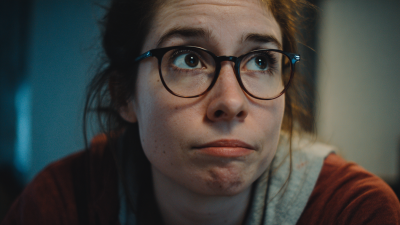Transform Your Drive: The Science Behind Car Window Tinting and Its Benefits
When it comes to enhancing your vehicle's aesthetics and functionality, few upgrades rival the transformative impact of car window tint. This article delves into the science behind car window tint and its myriad benefits, offering a comprehensive guide for those considering this popular modification.
Car window tint is not just a stylish addition; it serves practical purposes, such as providing UV protection, reducing heat inside the car, and enhancing privacy for passengers. Understanding the different types of window tints available and their specific advantages can help you make an informed decision.
Whether you're a car enthusiast who values both form and function or a safety-conscious driver eager to improve your riding experience, exploring the innovations in car window tinting will reveal how this simple upgrade can lead to significant improvements in your daily drive.
Understanding the Basics of Car Window Tinting: Types and Technologies
Car window tinting is more than just a stylish addition to your vehicle; it offers various benefits, including UV protection and enhanced privacy. Understanding the basic types of window tinting can help you make an informed choice. The three main categories include dyed, metalized, and ceramic films. Dyed films are the most affordable and provide a sleek appearance, while metalized films reflect heat and UV rays due to their metallic components. On the other hand, ceramic films deliver superior performance by blocking heat without compromising visibility.
When considering window tinting, it’s essential to keep a few tips in mind. First, check your local regulations regarding tint darkness, as laws vary by region. Second, choose a reputable installer to ensure proper application and durability. Finally, consider the long-term benefits of higher-quality films, even if they come at a higher initial cost. Investing in top-tier window tint can provide better protection and energy savings over time.
Transform Your Drive: The Science Behind Car Window Tinting and Its Benefits
| Type of Tint |
Material |
UV Protection (%) |
Heat Reduction (%) |
Visible Light Transmission (%) |
| Dyed Window Tint |
Dyed Polyester |
99% |
N/A |
5-50% |
| Metalized Window Tint |
Metalized Film |
99% |
40-60% |
5-50% |
| Ceramic Window Tint |
Ceramic Particles |
99% |
50-70% |
20-70% |
| Carbon Window Tint |
Carbon Film |
99% |
40-60% |
15-50% |
| Hybrid Window Tint |
Combination of Materials |
99% |
45-65% |
10-50% |
The Science of UV Protection: How Tinting Blocks Harmful Rays
Car window tinting plays a crucial role in UV protection, blocking harmful rays that can otherwise penetrate through glass. Just as polarized sunglasses are designed to cut glare and shield our eyes from UV exposure, tinted windows serve a similar purpose for vehicle occupants. These films prevent a significant amount of ultraviolet radiation, which can lead to skin damage and contribute to long-term health risks such as skin cancer. Even during cloudy days, when UV rays can still reach us, having tinted windows minimizes the risks associated with prolonged exposure during commutes.
Moreover, the science behind UV protection in window tinting involves advanced materials that absorb and reflect various wavelengths of light. While traditional car glass may block some UV rays, it is not sufficient to provide comprehensive protection. The added layer of tint acts as an effective barrier, enhancing safety and comfort within the vehicle. Given the increasing awareness of sun exposure's dangers, investing in quality window tinting is a practical step for any driver looking to safeguard their health while on the road.
Transform Your Drive: The Science Behind Car Window Tinting and Its Benefits
Car window tinting offers a range of benefits that enhance your driving experience. The chart displays the percentage of key advantages, including UV protection, heat reduction, glare reduction, and interior preservation. With up to 99% UV protection, window tinting significantly reduces harmful rays, improving comfort and safety.
Enhanced Comfort and Safety: The Thermal Benefits of Window Tinting
 Window tinting has become a popular choice for many car owners, not only for its aesthetic appeal but also for the significant thermal benefits it offers. By reducing the amount of solar heat that enters the vehicle, tinted windows help maintain a more comfortable interior temperature. This is particularly important during the hot summer months, when cars can quickly become unbearably hot. With a proper installation of window tint, drivers and passengers can enjoy a cooler ride without relying heavily on air conditioning, which can enhance fuel efficiency and reduce energy consumption.
Window tinting has become a popular choice for many car owners, not only for its aesthetic appeal but also for the significant thermal benefits it offers. By reducing the amount of solar heat that enters the vehicle, tinted windows help maintain a more comfortable interior temperature. This is particularly important during the hot summer months, when cars can quickly become unbearably hot. With a proper installation of window tint, drivers and passengers can enjoy a cooler ride without relying heavily on air conditioning, which can enhance fuel efficiency and reduce energy consumption.
Safety is another critical advantage of window tinting. The insulating properties of tinted windows not only prevent excessive heat but also help in blocking harmful UV rays that can cause skin damage. In addition, window films can strengthen the glass, making it less likely to shatter in an accident, thus providing an added layer of protection. Overall, the thermal benefits of car window tinting significantly enhance the comfort and safety of a driving experience, making it a worthwhile investment for any vehicle owner.
Aesthetic Appeal and Privacy: Choosing the Right Tint for Your Vehicle
Car window tinting is more than just a stylish enhancement; it serves practical functions such as privacy and sun protection. As the demand for tinted windows grows, especially in sun-drenched locales like Noosa on Queensland's Sunshine Coast, car owners increasingly seek both aesthetic appeal and the benefits that come with it. With the automotive film market poised to reach around USD 25 billion by 2034, the trend indicates a robust interest in improving vehicular comfort and style. The rising popularity of window tinting is fueled not only by the visual allure it provides but also by its ability to block harmful UV rays, making rides cooler and safer.
When choosing the right tint for your vehicle, it's essential to consider local regulations governing window tint percentages and reflectivity to avoid legal pitfalls. For instance, states like Connecticut and New Jersey have specific laws that restrict how dark you can tint your windows. Therefore, understanding these legal frameworks is crucial for ensuring your aesthetic choices do not lead to unexpected fines or insurance issues. By staying informed and selecting appropriate films, vehicle owners can achieve the perfect balance of privacy and compliance, enhancing both the look and functionality of their cars.
Tips for Maintaining and Caring for Tinted Windows for Longevity
When it comes to maintaining tinted windows, regular care and attention are essential for longevity and optimal performance. First and foremost, it is crucial to avoid using harsh chemicals or abrasive materials when cleaning the windows. Instead, a soft microfiber cloth paired with a gentle pH-balanced cleaner is recommended. This will help preserve the tint quality while preventing scratches or peeling. Additionally, it’s best to clean the tinted windows on overcast days or when the sun isn't directly shining on them, as extreme heat can cause streaking.

Another key aspect of caring for tinted windows is to ensure the film adheres properly. After installation, it’s advisable to wait at least a week before rolling down the windows. This allows the film to set completely, ensuring maximum effectiveness and durability. Regular inspections for any signs of bubbling, peeling, or discoloration can also help catch potential issues early. By following these tips, you can keep your tinted windows looking great and functioning effectively for years to come.

Home
Products
Paint Protection Film
TPU Color PPF
Window Tint
1Ply Primary Film
2Ply Primary Film
2Ply Korean Primary Film
Nano Ceramic Film
Inorganic Nano Ceramic High Insulation Film
Skincare Nano Ceramic Film
5G HD Hot Melt Film
Magnetron Heat Reflection Film
Titanium Nitride Optical Film
Titanium Nitride HD Magnetron Metal Film
Titanium Nitride HD Skincare Film
4mil 99% Safety Film Series
2mil 99% High Insulation King Series
Constant Color High Insulation Film
Constant Color Window Film
Chameleon Window Film
3mil Windshield Film
Headlight Film
Sunroof Film
About Us
Video
News
Blog
Contact Us

 Window tinting has become a popular choice for many car owners, not only for its aesthetic appeal but also for the
Window tinting has become a popular choice for many car owners, not only for its aesthetic appeal but also for the 





